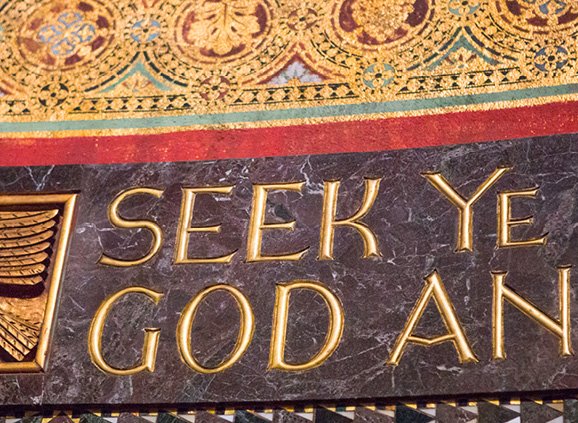
- Education Forums
Bible Study Guide for Sunday, February 6, 2022

- Isaiah 6:1-8, [9-13]
- Psalm 138
- 1 Corinthians 15:1-11
- Luke 5:1-11
The lectionary this week lists verses 9-13 of Isaiah as optional which is an interesting choice. Without those verses, we have an almost cute scene of God looking for a candidate to send to speak to Israel and Isaiah saying “Here I am; send me!” Unfortunately for Isaiah, the words from the optional verses that God sends him to speak are not hopeful ones. Isaiah will speak words of condemnation and devastation to Israel in God’s name.
In reading Isaiah, it is natural to wonder how God can punish Israel so severely. We know from Isaiah, 1 and 2 Kings, and our other Old Testament books that in the years leading up to the exile, Israel had become an unjust, corrupt, and idolatrous society. But surely, not all were guilty? Did the children of Israel deserve to suffer violence and exile? How do we understand the ruin of Israel as anything other than a gross injustice that spared not even the innocent?
After reading and thinking much on this subject and why God allows the innocent to suffer, the answer I have seen many propose that I find the most satisfactory is that God’s wrath is less direct action against humans and more divine consent to our free will. If humans want to make the world a horrible mess, God will let them. Mr. Rogers, in a letter to a friend, captures the situation in a way that has always spoken to me: “If there is such a thing as a ‘dark corner’ of God’s nature then I think it’s God’s refusal to go back on the promise of ‘the creation’s freedom to love or not.’”
However, Mr. Rogers also notes “If we choose to allow [Love] to grow we’ll be given help.” God’s wrath may be understood as indirect. God’s love, however, is direct tangible action in the form of the birth and life of Jesus Christ. Jesus healed, Jesus taught, and Jesus spoke out on the side of the innocent. We are also blessed with the Holy Spirit which teaches us how to pray, how to love, and how to get through the dark times. God did not abandon Israel, and God will not abandon us.
– Ryan Newberry
How do you relate to the experience of Isaiah as the bearer of bad news or hard truths?
Have you been on the receiving end of such words?
How does the notion of God having a “dark corner” to God’s nature sit with you?
Do you see that “corner” as God’s consent to our free will or something different?
- January 2024
- December 2023
- November 2023
- October 2023
- September 2023
- June 2023
- May 2023
- April 2023
- March 2023
- February 2023
- January 2023
- December 2022
- November 2022
- October 2022
- June 2022
- May 2022
- April 2022
- March 2022
- February 2022
- January 2022
- November 2021
- October 2021
- September 2021
- August 2021
- July 2021
- June 2021
- May 2021
- April 2021
- March 2021
- February 2021
- January 2021
- December 2020
- November 2020
- October 2020
- September 2020
- August 2020
- July 2020
- March 2020
- February 2020
- January 2020
- December 2019
- November 2019
- October 2019
- September 2019
- August 2019
- July 2019
- June 2019
- May 2019
- April 2019
- March 2019
- February 2019
- January 2019
- December 2018
- November 2018
- October 2018
- September 2018
- August 2018
- July 2018
- June 2018
- May 2018
- April 2018
- March 2018
- February 2018
- January 2018
- December 2017
- November 2017
- October 2017
- September 2017
- July 2017
- May 2017
- April 2017
- March 2017
- February 2017
- January 2017
- December 2016
- November 2016
- October 2016
- September 2016
- August 2016
- May 2016
- April 2016
- March 2016
- February 2016
- January 2016
- December 2015
- November 2015
- October 2015
- October 2013
- September 2013
At "Educational Forums," enrich your spiritual journey by exploring our resources including videos of lectures, essays by priests, and other pieces about our faith, our church, and what it means to be a disciple of Jesus in the 21st century.


Comments